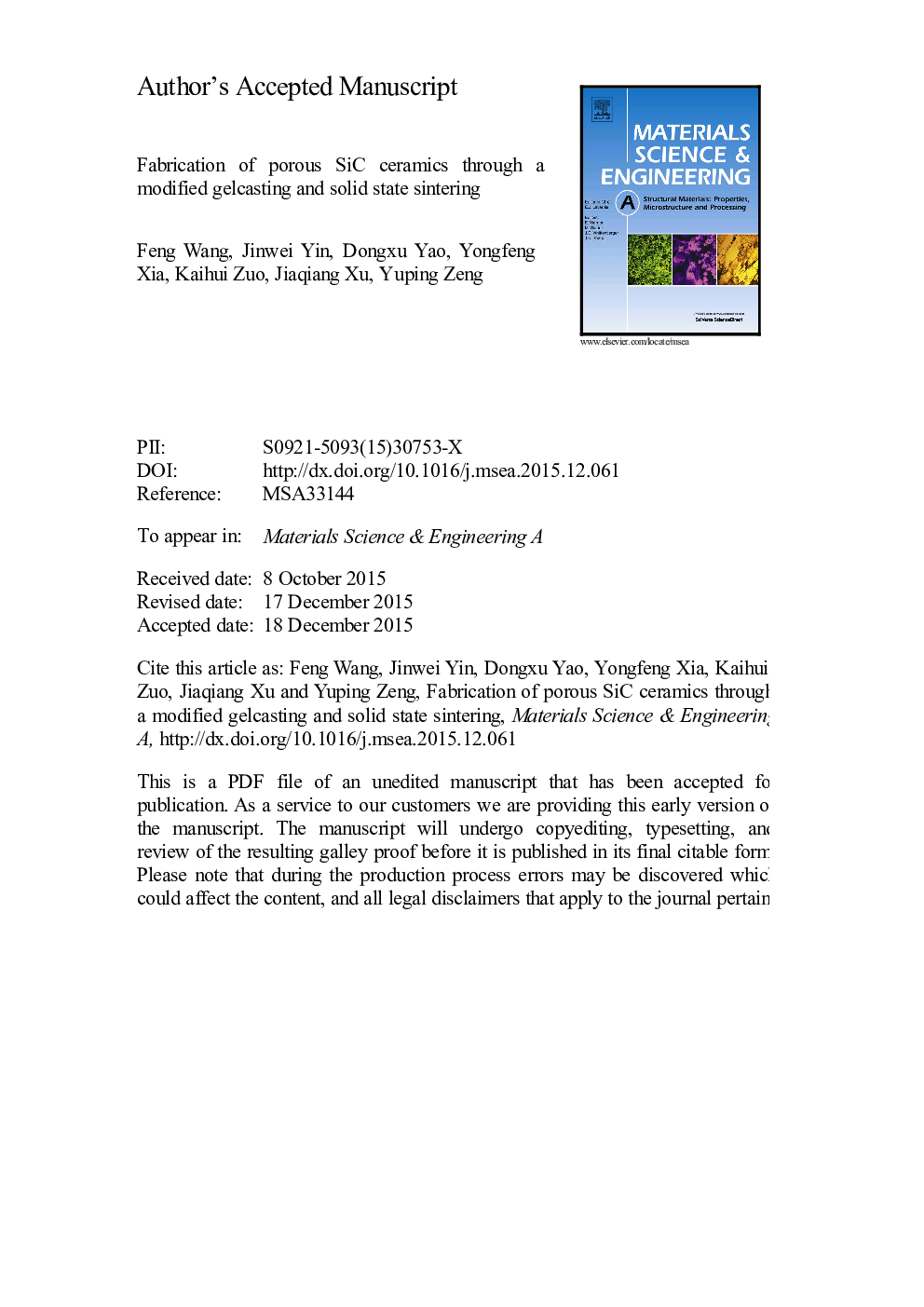| Article ID | Journal | Published Year | Pages | File Type |
|---|---|---|---|---|
| 7975663 | Materials Science and Engineering: A | 2016 | 18 Pages |
Abstract
With starch as pore forming agent, porous silicon carbide (SiC) ceramics were successfully fabricated by gelcasting. A novel and simple gelling system of isobutylene and maleic anhydride (Isobam) can gel in air at room temperature was used. The rheological behaviors of SiC slurries were investigated as a function of starch content. The gelled SiC green bodies were sintered at 2050-2150 °C through solid state sintering with B4C and carbon as sintering additives. Porosity of the porous SiC ceramics sintered at 2100 °C was well controlled from 34.20% to 42.68% with the starch content increasing from 0 to 20 wt%. With increasing the sintering temperature from 2050 to 2150 °C, flexural strength and porosity of porous SiC ceramics with 20 wt% starch varied from 61.0 to 128.0 MPa and 48.1% to 34.2%, respectively. The porous SiC ceramics fabricated with 20 wt% starch addition and sintered at 2100 °C were proved to possess excellent thermal shock resistance. The ceramics after water-quenching at 1500 °C showed an average flexural strength of 95.8 MPa, which was higher than the strength of samples without quenching.
Related Topics
Physical Sciences and Engineering
Materials Science
Materials Science (General)
Authors
Feng Wang, Jinwei Yin, Dongxu Yao, Yongfeng Xia, Kaihui Zuo, Jiaqiang Xu, Yuping Zeng,
